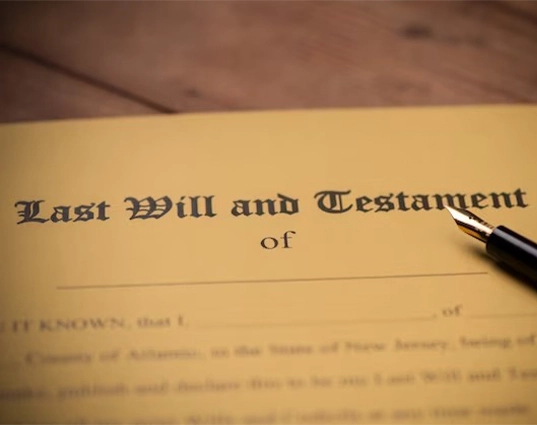Our Wills And Estates Lawyer Milton at Estofa Law provides unmatched skill in handling the complexities of estate preparation and administration. Our Wills and Estate Lawyers offers comprehensive assistance from creating and amending wills to negotiating difficult probate procedures. Our Wills And Estates Lawyer Oakville have a great awareness of both the procedural and psychological elements of estate concerns. Through the provision of customized legal services and proactive guidance, our Wills And Estates Lawyer Hamilton guarantee that their clients’ desires are duly recorded and respected, while simultaneously handling possible conflicts and obstacles. Our Wills And Estates Lawyer Toronto commitment to careful planning and kind service to clients makes them a reliable resource for ensuring serenity of mind and protecting the legacy in Milton.
A will is a legally binding agreement that expresses a person’s preferences for how their assets will be distributed and how their estate will be run when they pass away. It is an essential instrument for guaranteeing that an individual’s financial resources, personal belongings, and obligations are managed by their choices. A will offers explicit instructions to promote the smooth transfer of assets and reduce potential disagreements among survivors by designating beneficiaries, appointing executors to manage the estate, and resolving issues like guardianship for minor children.

You can specify how you want your money and possessions to be distributed after death by writing a will. Wills typically contain the following:
When the testator—the person who made the will—dies, the will becomes operative. The will is merely a collection of guidelines that cannot be followed or enforced until that point. The will must be filed with the probate court when the testator passes away so that its terms can be carried out and legality verified. The distribution of assets by the testator’s preferences is guaranteed by the probate process, which also assures appropriate administration of the will. The will has no legal power to influence the estate’s distribution or take care of any other issues mentioned in it until it is probated.
Although necessary for specifying how assets will be distributed and other end-of-life desires, will not cover every facet of estate planning. For example, assets held in joint tenancy pass immediately to the surviving joint owner; similarly, assets having named beneficiaries, like retirement accounts or life insurance policies, are dispersed by those designations and are not covered by a will.
A will needs to fulfill several important legal conditions to be accepted. It has to be invented by a person who is of legal age, usually eighteen years of age or older, and sound mind. The testator shall sign the will in the company of two or more impartial witnesses, who shall likewise seal the document to confirm its legitimacy, after it has been written down, either by hand or by typing. The witnesses should not be beneficiary or have a stake in the estate in order to avoid conflicts of interest. The will also needs to clearly state the testator’s intentions and include specific guidelines for how assets are to be distributed.
Our Wills And Estates Lawyer Haldimand County have experience in dealing with all types of estate planning and administration, from simple wills to complex blended family situations and transfers of business interests.
Estofa Law is a real estate law firm dedicated to serving clients in Burlington, Oakville, Milton, Hamilton, and Toronto.
The material found on our website is intended purely for informational purposes. It is not to be considered as legal advice or a replacement for seeking guidance from a qualified professional. A solicitor-client relationship is not established until formal retention.
Copyright © 2025 | Estofa Law Professional Corporation | All Rights Reserved